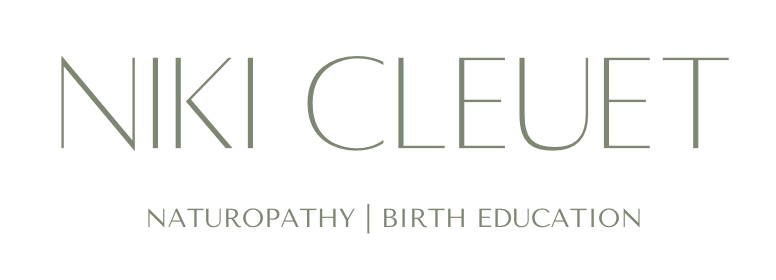What is Hashimoto's Disease?
/If you, a family member or a friend were recently diagnosed with Hashimoto’s disease, you might be wondering what it is, what it means and where to go from here. I’ve written this blog as an attempt to answer some of these questions for you, as well as to enable you to share it with family or friends who might like to know more about your condition.
So firstly, what is Hashimoto’s disease?
Hashimoto’s disease is an autoimmune thyroid disease, which means there’s two key parts to understanding it.
1. Firstly, an autoimmune disease is one in which the body’s immune system mistakenly attacks its own tissues.
2. In the case of Hashimoto’s disease, this immune response takes place against the thyroid gland; a butterfly shaped gland that sits in the neck. To learn more about the thyroid itself, check out this article here.
If untreated, the immune system continues to damage the thyroid gland, reducing it’s ability to produce thyroid hormone and thus resulting in an “underactive thyroid” (known as hypothyroidism). As thyroid hormone plays many roles in our body, this can result in a wide range of symptoms, such as constipation, fatigue, weight gain, dry skin, infertility and more.
Is Hashimoto’s disease the same as hypothyroidism?
Hypothyroidism refers to a state of under-active thyroid function. This can occur for various reasons, such as nutritional deficiencies, extreme stress, radiation treatment, or most commonly, Hashimoto’s disease. Essentially, Hashimoto’s disease is an autoimmune condition that can result in hypothyroidism, meaning they are often go hand-in-hand.
What causes Hashimoto’s disease?
Whilst there is no one cause of Hashimoto’s disease, there are many factors that may play a role in its development or can increase your risk of developing the condition. This may include:
A genetic predisposition (e.g. having a family member with an autoimmune thyroid disease)
Pre-existing autoimmune diseases (such as having Coeliac disease or vitiligo)
Being female
Being middle aged
Smoking
Radiation exposure
Prolonged stress
History of excessive iodine intake
Nutrient deficiencies (such as of selenium and/or iodine)
Intestinal hyper-permeability
Oxidative stress
How is Hashimoto’s disease diagnosed?
Hashimoto’s disease is diagnosed via blood test. A typical confirmatory blood test will reveal elevated TSH (thyroid stimulating hormone), suppressed T4 and raised antibody titres (typically thyroid peroxidase antibodies and in some cases, thyroglobulin antibodies as well). In the case of a goitre, an ultrasound will reveal an enlarged and inflamed thyroid gland.
How is Hashimoto’s disease treated?
Medically-speaking, patients with Hashimoto’s hypothyroidism are typically prescribed lifelong thyroid hormone replacement, to compensate for their body’s reduced ability to produce its own thyroid hormone. In this case, they are usually prescribed one of the following three options:
Thyroxine (replacement T4)
Synthetic or compounded T3
Compound thyroid extract (a combination of T4 and T3, typically derived from a pig’s thyroid gland)
In this case, damage to the thyroid often continues, however symptoms of hypothyroidism are managed by supplementing with the chosen form of thyroid hormone.
As a naturopath, my aim is to identify, address and remove potential causative factors, to dampen the autoimmune response and where possible, slow or halt progression of the disease. In addition, I prescribe specific nutrients (like selenium, zinc and iron) to support the function of the thyroid gland and enable adequate production and conversion of thyroid hormones in the body. I also use supplemental antioxidants to minimise oxidative stress and inflammation in the thyroid gland, to prevent further cell damage. Lastly, I monitor patients closely with regular blood tests, not only to assess their response to treatment, but also to track their progression and modify treatment approaches where necessary.
It’s important to mention that many of the patients I work with are taking concurrent thyroid hormone medication, in the form of T4, T3 or desiccated thyroid extract. With ongoing nutritional and herbal support, many of these patients have been able to reduce their dose of thyroid hormone (in consultation with their doctor) and in some cases, come off thyroid hormone replacement entirely. In all cases though, we work closely with the patient and their doctor to ensure optimal thyroid function and patient wellbeing.
Is Hashimoto’s disease curable?
Whilst there is no cure for Hashimoto’s disease, there are countless examples of patients who have been able to achieve remission from their condition and reduce or eliminate their need for thyroid hormone replacement. In my own experience, I was able to drastically reduce my antibody levels to within normal range, whilst also achieving a euthyroid state. Whilst this is anecdotal, it has been my clinical and personal experience that Hashimoto’s disease does not have to be a progressive condition, and that it is possible to reduce autoantibody titres and improve thyroid function via nutritional, herbal and lifestyle interventions.
So what next?
If you or someone you know has been recently diagnosed with Hashimoto’s disease, I recommend you read my article on the topic HERE; I wrote this article to answer the question of ”what now?” for individuals who have recently received a Hashimoto’s diagnosis. I hope you find it helpful, and if so, please subscribe to my website to receive my future articles on the topic. Alternatively, if you’re interested in booking an appointment with me, you can do so HERE.
Niki x





